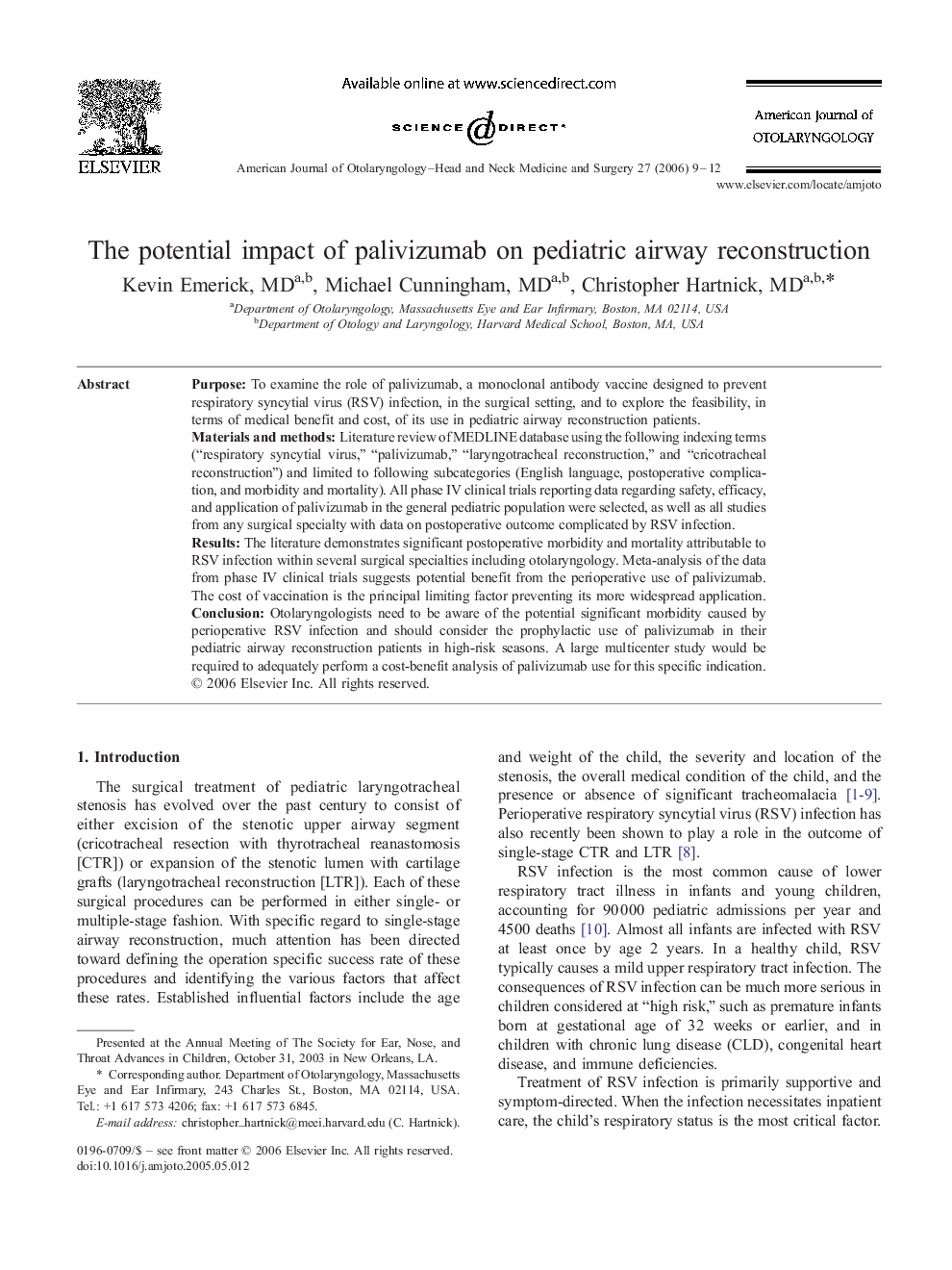| Article ID | Journal | Published Year | Pages | File Type |
|---|---|---|---|---|
| 4104656 | American Journal of Otolaryngology | 2006 | 4 Pages |
PurposeTo examine the role of palivizumab, a monoclonal antibody vaccine designed to prevent respiratory syncytial virus (RSV) infection, in the surgical setting, and to explore the feasibility, in terms of medical benefit and cost, of its use in pediatric airway reconstruction patients.Materials and methodsLiterature review of MEDLINE database using the following indexing terms (“respiratory syncytial virus,” “palivizumab,” “laryngotracheal reconstruction,” and “cricotracheal reconstruction”) and limited to following subcategories (English language, postoperative complication, and morbidity and mortality). All phase IV clinical trials reporting data regarding safety, efficacy, and application of palivizumab in the general pediatric population were selected, as well as all studies from any surgical specialty with data on postoperative outcome complicated by RSV infection.ResultsThe literature demonstrates significant postoperative morbidity and mortality attributable to RSV infection within several surgical specialties including otolaryngology. Meta-analysis of the data from phase IV clinical trials suggests potential benefit from the perioperative use of palivizumab. The cost of vaccination is the principal limiting factor preventing its more widespread application.ConclusionOtolaryngologists need to be aware of the potential significant morbidity caused by perioperative RSV infection and should consider the prophylactic use of palivizumab in their pediatric airway reconstruction patients in high-risk seasons. A large multicenter study would be required to adequately perform a cost-benefit analysis of palivizumab use for this specific indication.
